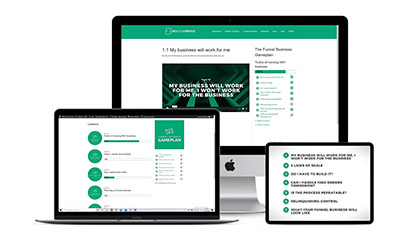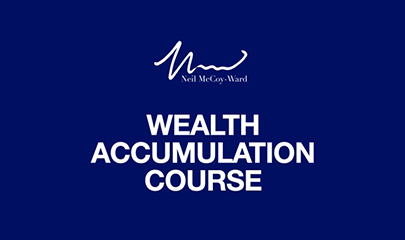9 Steps to Financial Freedom: Wisdom, Strategies and Tactics for Abundant Wealth (Audiobook) by John Demartini
$6,00
9 Steps to Financial Freedom: Wisdom, Strategies, and Tactics for Abundant Wealth – Digital Download!
Let dive into a course designed to ignite your curiosity and reveal priceless insights, fueling your passion for discovery and exploration

9 Steps to Financial Freedom: Wisdom, Strategies and Tactics for Abundant Wealth (Audiobook) by John Demartini
Overview

9 Steps to Financial Freedom: Wisdom, Strategies, and Tactics for Abundant Wealth
In his book “9 Steps to Financial Freedom: Wisdom, Strategies, and Tactics for Abundant Wealth,” Dr. John Demartini outlines a comprehensive plan for building and maintaining wealth. This audiobook encourages listeners to actively and consciously manage their finances by acting as a comprehensive approach to financial literacy and empowerment. It is not just a handbook. The main idea behind Demartini’s teachings is that achieving financial freedom requires an introspective process that includes realizing one’s principles, changing one’s perspective, and using smart methods for long-term financial success.
Beyond the traditional meaning of money, there is more to the concept of financial freedom. It represents the development of constructive money-related concepts, emotional fortitude, and useful techniques that go beyond basic financial survival. Demartini’s theories encourage people to examine their relationship with money, think about the possibility of making sensible investments, and recognize the value of lifelong learning. This framework serves as a compass to help people achieve financial mastery by ensuring that they meet their financial objectives and improve personally in the process. Demartini expounds on how to sidestep typical mistakes and discern the distinct processes required to obtain abundant wealth through in-depth study and useful strategies.
Knowing How to Build Wealth
Building wealth is like taking care of a garden. To see the results of your labor blossom, meticulous preparation, caring, and patience are necessary. Three essential elements comprise understanding wealth building: knowledge, mindset, and action. The information and techniques one acquires to make wise financial decisions are referred to as knowledge. It is crucial to have a solid understanding of concepts like market dynamics, investment trajectories, and the power of compound interest. But mindset acts as the fertile ground where this knowledge is grown. Knowledge seeds have a significantly higher chance of taking root and flourishing in an environment rich in optimism and growth-oriented ideals.
However, the branches and leaves of a well-thought-out financial plan are formed by action. Without it, attitude is left idle and knowledge lies dormant. True wealth building requires active participation in financial growth-producing activities including investing, saving, and budgeting. A few crucial components highlight the process of accumulating wealth:
- Knowledge Acquisition: You can learn more about wealth-building techniques by reading books, going to seminars, or listening to audiobooks like Demartini’s.
- Self-Assessment: Analyzing one’s own financial beliefs can uncover unconscious obstacles to financial progress. Critical insights might be uncovered by asking questions such as “What does wealth mean to me?” and “How do I view debt?”
- Realistic Execution: Set objectives and follow-through procedures. This could be as simple as establishing a rigorous savings plan, building a diverse investment portfolio, or focusing on several sources of income.
Gaining an understanding of the subtleties of wealth growth enables people to customize their financial paths according to their own goals and situations. Aspiring wealth builders need to be aware of their individual starting places and take purposeful steps to achieve their financial goals, just as a gardener has to understand their surroundings.
Crucial Questions for Wealth Commitment
Dr. Demartini’s methodology revolves around the crucial questions that indicate an individual’s level of commitment to financial progress. These inquiries delve deeply into individual goals and motives in addition to being useful as tools for introspection. Through responding to these questions, people can strengthen their dedication to wealth-building tactics, enabling a more targeted and concentrated strategy for reaching financial independence.
- What financial objectives do I have? This question establishes the framework by eliciting a precise description of the person’s definition of financial success. It supports aspirations for altruism, security, and financial independence as well as meticulous planning.
- How do I view money? This inquiry probes feelings related to wealth and money. How you handle your finances might change significantly depending on whether you see money as a source of stress or as a tool for empowerment.
- Will I take the time to learn about financial systems? One’s readiness to experiment with different wealth-building strategies and devote time to learning about the many options is another indication of commitment.
- What compromises am I willing to make in order to reach my financial objectives? Realizing that accumulating wealth frequently requires making short-term sacrifices can improve focus and dedication. This self-reflection is essential, whether the goal is to invest in education or reduce wasteful spending.
- How do I monitor my development? By establishing a frequent check-in, one can establish responsibility and modify strategies in response to changes in goals or financial performance over time.
Through in-depth investigation of these issues, people can cultivate a deep dedication to their financial path. The newfound understanding will operate as a beacon of light, showing the route toward abundant wealth through doable actions.
Differentiating Speculation, Investing, and Saving
Understanding the differences between saving, investing, and speculating—three seemingly similar but fundamentally diverse financial activities—is essential to laying a solid foundation for wealth creation. Everybody has different goals, risks, and ramifications when it comes to creating wealth.
- Saving:
- Purpose: Saving involves setting aside money gradually for future use, generally for emergencies or short-term goals.
- Low Risk: Savings accounts yield minimal returns but carry low risk, making them ideal for maintaining liquidity.
- Time Frame: Short-term focus, typically spanning months to a few years for specific endeavors like vacations, home repairs, etc.
- Investing:
- Purpose: Investing aims to allocate funds into various assets such as stocks, bonds, or real estate to generate higher returns over time.
- Higher Risk with Potential for Returns: While investments may entail risks due to market fluctuations, they usually yield greater returns than savings.
- Long-Term Focus: Investors often seek to hold assets for extended periods (five years or more) to achieve substantial appreciation.
- Speculating:
- Purpose: Speculation aims for short-term gains through risky assets or market movements, often aligned with trends or whims.
- High Volatility: With the potential for significant profit comes the possibility of severe losses, making speculation akin to ********.
- Short Time Horizon: Speculators expect fluctuations to create opportunities, requiring quick decision-making and extensive market knowledge.
Understanding these distinctions helps individuals strategically allocate their funds based on specific financial goals and timelines, ultimately cultivating a balanced approach towards wealth accumulation.
The Mindset’s Function in Creating Wealth
According to Dr. Demartini, mentality plays a fundamental role in determining one’s financial future. Financial decision-making is influenced by a combination of values, attitudes, and beliefs known as the wealth-building mindset. The following are some important ways that mentality affects how money is created:
- Consciousness and Instruction: People need to develop a solid awareness of investment techniques, financial concepts, and the significance of investing as well as conserving. Wealth-oriented thinking places a strong emphasis on the value of lifelong learning and adaptation, enabling people to make wise decisions.
- Long-Term Viewpoint: Surviving in the financial environment requires holding onto a long-term perspective. Building wealth frequently calls for perseverance through market swings and the projection of confidence that patient tactics will eventually pay off.
- Seizing Growth possibilities: Seizing possibilities that present themselves in volatile markets requires a growth-oriented mindset. Wealth builders are frequently those that don’t mind taking chances and instead seek out situations that will help them grow and learn.
- Financial Discipline: It’s essential to develop a disciplined attitude to money management. People who handle their money like a business are able to plan their investments, make systematic budgets, and keep a close eye on their spending.
As Demartini points out in “9 Steps to Financial Freedom,” it’s critical to hone one’s thinking and match it with wealth-creation ideas. In addition to altering one’s perspective on money, having a positive outlook on life gives one a sense of control over one’s financial destiny, which promotes lasting wealth.
9 Steps to Financial Freedom: Wisdom, Strategies and Tactics for Abundant Wealth (Audiobook) by John Demartini
Tested Techniques for Increasing Wealth
Effective wealth-building techniques are essential steps on the route to financial freedom. These strategies cover both traditional methods and cutting-edge ways to improve your investment portfolio. Your wealth trajectory can be considerably impacted by implementing practical methods that are supported by sound financial knowledge.
- Make a thorough financial plan: Creating a strategic financial strategy enables customized guidance with respect to earnings, costs, and investment objectives. It is imperative to periodically examine and modify the plan in response to changing conditions.
- Invest Early and Often: Because compound interest works, the old saying, “the earlier, the better,” has a lot of merit when it comes to accumulating wealth. Invest regularly in bonds, mutual funds, or equities, starting small and preferably putting money in retirement accounts to take advantage of tax breaks.
- Reduce Debt: Use practical debt-reduction techniques, like the avalanche or snowball method, to pay off high-interest debts that may be impeding your ability to make financial progress. Better borrowing rates may also become available with higher credit scores.
- Maximize Retirement Contributions: Give employer-matching contributions to retirement accounts, such 401(k)s and IRAs, first priority. Over time, the benefits of managing to give as much as possible can be enormous.
- Diversify Your Income: You can improve cash flow and lessen your dependence on a single source of income by pursuing a variety of revenue streams, such as side gigs, real estate investments, or freelance work.
- Ongoing Financial Education: Utilize a range of resources to expand your knowledge about investing opportunities and personal finances. Books, podcasts, and courses are excellent options.
These tactics reinforce dedication and hard work while overcoming financial obstacles, acting as potent accelerators for wealth accumulation and financial independence advancement.
Six Crucial Steps to Reach Financial Stability
Reaching financial freedom is a journey that calls for a planned, methodical strategy. Following Dr. Demartini’s advice, the following six crucial actions offer a path to financial independence:
- Have Well-Defined Objectives: Set quantifiable, precise financial goals that align with your dreams. Clarity regarding your goals is essential when saving for a down payment, accumulating investments, or making retirement plans.
- Make and Follow a Budget: Keeping an eye on income and expenses requires a well-organized budget. Make sure you regularly set aside a portion of your income for investments and savings by analyzing your spending patterns and making any required adjustments.
- Create an Emergency Fund: Try to save enough money for three to six months’ worth of expenses per month. Having an emergency fund reduces stress in the event of unanticipated events by offering financial security and peace of mind.
- Make Savings and Investing a Priority: Set aside a portion of your monthly income for savings and investing. Automated transfers into investing or retirement accounts can streamline the procedure and lessen the need to overspend.
- Regularly examine and revise your goals and plans while keeping a close eye on your financial progress. Frequent updates enable course correction and reaffirm your dedication to your financial future.
- Develop a Wealth-Building Mindset: Put your attention on forming attitudes and convictions that encourage wise financial decisions. Be in the company of like-minded people who motivate you to reach higher levels of financial achievement.
Through adherence to a disciplined approach and the implementation of these organized stages, individuals can establish a strong basis for financial success and independence, while actively participating in the wealth-building process.
Techniques of Forced Accelerated Savings
Dr. John Demartini emphasizes how important it is to have disciplined savings habits in order to become financially independent. The goal of forced accelerated savings techniques is to take use of the self-control and automatic mechanisms that promote wealth accumulation with the least amount of resistance. Here are a few practical methods to think about:
- Automated Transfers of Savings: Establish automatic transfers to savings or investment accounts from your checking account. When money is directed automatically, saving takes precedence over discretionary expenditure.
- Pay Yourself First: Get in the habit of thinking of savings as an ongoing cost. As soon as you get paid, set aside some money for savings before taking care of other obligations.
- Make Use of High-Interest money Accounts: High-interest accounts, such as certificates of deposit (CDs), allow your money to grow more quickly than traditional savings accounts, which may offer poor yields.
- Start a Savings Challenge: To encourage yourself to save more, take up a savings challenge. Creating a game-like approach to saving, such as setting a goal and gradually increasing it every week or month, can encourage participation.
- Strengthen Habitual Saving: You can develop sound financial habits by establishing a regular timetable for your savings contributions. To stay consistent with your savings goals, think about creating monthly rituals or setting reminders.
Benefiting from these strategies, people can improve their general financial health and establish a strong basis for building wealth by incorporating discipline into their financial practices.
Increasing Profit Margins
Increasing profit margins can greatly boost attempts to accumulate riches. In order to support long-term growth and investment prospects, Dr. Demartini highlights that firms must actively improve their profit margins in addition to their revenue creation efforts. Here are a few tactics to think about:
- Evaluate the efficiency of operations: Assess company activities on a regular basis to ensure maximum efficiency. Determine where expenses might be cut or procedures streamlined without sacrificing quality.
- Use dynamic pricing systems to set prices that maximize profits while responding to market demand. Customers’ perceptions of value can be improved by providing bundled services, seasonal discounts, or tiered pricing.
- Contracts with Suppliers: Establish trusting bonds with suppliers and work out advantageous arrangements to cut expenses. Building trust might eventually result in improved pricing strategies and higher profit margins.
- Think Before You Outsource: If there are non-core functions that could be more affordable for outside vendors, think about outsourcing them. Putting resources back into core capabilities promotes increased profitability and productivity.
- Keep an eye on the following KPIs: Analyze financial data to compare performance to predetermined targets. KPIs can highlight patterns and chances to boost productivity.
- Invest in Technology: Make use of technology to increase productivity by automating tasks. By streamlining laborious processes, financial and operational software can free up resources for wise investment.
Through the implementation of these tried-and-true methods for optimizing profit margins, both individuals and companies can foster more robust financial ecosystems and use those gains to fund additional expansion prospects.
Leveraging Financial Tools
Leveraging financial tools effectively forms a cornerstone of successful wealth-building strategies. Financial tools can be likened to navigational aids, guiding individuals through the complexities of personal finance and investment landscapes. Here’s how they can be effectively utilized:
- Budgeting Software: Employ budgeting apps such as YNAB (You Need A Budget) or Mint to track spending, savings, and investment goals. These tools provide a clear visual representation of finances, enabling better decision-making.
- Investment Platforms: Platforms like Robinhood or E*TRADE simplify the investment process, allowing users to access market insights while making informed choices that align with personal goals.
- Retirement Calculators: Utilize various online tools and calculations to assess retirement savings requirements based on lifestyle expectations. These calculators can illuminate your journey toward a secure retirement.
- Financial Analytics Tools: Make use of tools integrating financial analytics for sophisticated investment tracking. Software options can help manage risk and provide data-driven insights to refine investment strategies.
- Passive Income Monitoring Systems: Leverage technology to track passive income sources like dividends or rental properties, streamlining the collection and reinvestment process.
By effectively incorporating and utilizing these financial tools, individuals can enhance their decision-making capabilities, amplify wealth-building efforts, and maintain focused trajectories toward financial freedom.
Entrepreneurial Attitude and Value System
The attitudes and ideals that are favorable to both corporate success and individual financial advancement are reflected in the entrepreneurial mindset. Innovation, resiliency, and a proactive attitude are encouraged by this way of thinking and are essential for mastering wealth. This framework includes a grasp of the value hierarchy, which ranks acts according to how likely they are to result in success.
- Recognizing Opportunities: People with an entrepreneurial attitude typically see obstacles as opportunities instead of barriers. They frequently look for novel answers to challenging issues, which increases the potential for wealth development.
- Risk management: Entrepreneurs are exceptionally skilled at identifying and controlling risk because they take calculated risks that others might shun. Embracing uncertainty allows for more profits and innovative opportunities.
- Growth Mindset: By fostering a drive to learn new things constantly, entrepreneurs may stay up to date on tactics, market trends, and investment opportunities, which enables them to quickly adjust to changes.
- Entrepreneurs prioritize their values and match their actions to long-term financial goals in a value hierarchy. In this hierarchy, wealth-oriented actions like reinvesting earnings and looking for partnerships that generate value become crucial.
- Leveraging Resources: To maximize development potential and generate efficiencies, entrepreneurs skillfully use resources like as people, technology, and financial tools. This illustrates a flexible view of how to optimize human and financial resources.
A strong framework for traversing financial landscapes can be created by adopting an entrepreneurial attitude and building a clear value hierarchy. This will open doors to wealth and financial independence.
9 Steps to Financial Freedom: Wisdom, Strategies and Tactics for Abundant Wealth (Audiobook) by John Demartini
Troubleshooting Financial Limitations
Troubleshooting financial limitations is an essential component of achieving financial independence. Recognizing barriers, such as limiting beliefs, poor financial habits, or lack of education, is the first step in addressing underlying issues. Consider the following strategies:
- Identifying Limiting Beliefs: Much of one’s relationship with money is founded on ingrained beliefs. Identifying destructive convictions, such as “I will never be wealthy,” empowers individuals to reframe their financial mindset.
- Develop a Comprehensive Financial Literacy Program: Commit to personal finance education through books, courses, and workshops. Knowledge directly counteracts ignorance and opens doors to informed decision-making.
- Set Realistic Goals: Establishing achievable financial targets promotes a sense of accomplishment, reinforcing positive behavior and commitment toward future opportunities.
- Embrace Accountability Measures: Consider working with a financial advisor or finding an accountability partner. Engaging with professionals grants access to tailored advice, ensuring that actions align with set goals.
- Continuous Reflection: Regularly reflect on your financial progress by evaluating spending habits, investment performance, and alignment with overarching financial objectives. Monitoring and adaptability are key in refining strategies.
Addressing financial limitations provides clarity, converting obstacles into stepping stones on the path toward financial freedom. By proactively confronting these challenges through education, reflection, and targeted action, individuals can create environments conducive to sustainable wealth creation.
Dealing with False Beliefs
For one’s financial development, it is essential to address false financial beliefs. Many cultural ideas and family stories influence how people view wealth, which frequently results in self-imposed constraints. It is essential to start a cognitive restructuring process in order to get past these:
- Determine Illusions: Identify any harmful notions about wealth, such as “wealth is only for the lucky” or “money is the root of all evil.” By bringing these viewpoints to light, people can take action to refute them.
- Change Your Perspective: See money creation as an empowering opportunity for personal development, making a positive effect on the community, and being able to support oneself and others, rather than as something heavy to bear.
- Develop empowering financial affirmations that you may use as a daily reminder to support your positive financial beliefs. Over time, affirmations such as “I am worthy of financial success” might help people develop an optimistic outlook.
- Encircle Yourself with Positive People: Attend networking events and seek mentorship from people who have a wealth attitude. Positive, financially savvy friends can encourage and support behavioral change.
- Put Values First: Make sure that financial decisions are in line with your personal values. This will help you feel more purposeful because wealth-building activities should represent your values and reasons.
By putting these tactics into practice, people can effectively dispel false beliefs that impede their financial growth and develop a mindset that promotes wealth building and financial freedom.
The Subordination Effect on Financial Growth
The subordination effect refers to psychological tendencies that place individuals in subordinate positions relative to others, often resulting in feelings of inadequacy. This perception can greatly impede financial growth. Recognizing and combating the subordination effect is essential for achieving financial independence.
- Recognizing Personal Value: Individuals must acknowledge and value their financial capabilities and contributions. Creating a personal value statement helps individuals articulate their worth, reinforcing self-belief.
- Transform Comparison into Inspiration: Shift the focus from comparing oneself to successful individuals to drawing inspiration from their journeys. Analyze the habits and practices that propelled their success, applying what resonates in your own financial strategy.
- Seek Supportive Networks: Engage with mentors and communities that foster inclusivity and support. Surrounding oneself with positive influences can help mitigate feelings of subordination and build a more empowered mindset.
- Adopt a Growth-Minded Perspective: Cultivate an attitude that embraces learning and development. Viewing obstacles as growth opportunities fosters resilience and reduces feelings of inferiority.
- Challenge Fear of Failure: Reframe setbacks as learning experiences rather than failures. Understanding that no financial journey is without ups and downs allows for a more constructive and optimistic outlook.
Addressing the subordination effect enhances self-confidence and empowers individuals to pursue financial growth, leveraging their unique strengths and capabilities toward achieving abundant wealth.
Useful Applications
The real-world implementation of wealth-building techniques is crucial to achieving financial expertise. People are able to both conceive and put into practice wealth-building principles when tactics are implemented effectively. The following are a few real-world uses for Dr. Demartini’s teachings:
- Establish a Schedule for Financial Check-Ins: To keep yourself financially conscious, set aside certain times each month or every three months to review your financial situation, reevaluate your goals, and adjust your budgeting techniques.
- Participate in Peer Learning: Set up study sessions on financial literacy with friends or coworkers. This cooperative strategy encourages transparency and information exchange.
- Increase Savings Contributions Gradually: To further support your net worth and wealth-building potential, as your financial condition improves, you should increase your savings and investment contributions.
- Benefit from Educational Resources: Make a conscious effort to locate materials on wealth creation, personal finance, and investing ideas. Examples of such materials include webinars, workshops, and podcasts.
- Try Out Some New Investment Strategies: Be open to investigating other investing options or asset types. You can diversify your portfolio by experimenting with microinvesting, real estate crowdfunding, and peer-to-peer lending.
By incorporating these useful apps into one’s daily routine, one can simultaneously nurture behaviors that lead to financial independence and an active and involved attitude to wealth-building.
Creating Passive Income Streams
Creating passive income streams is a critical element of financial freedom. Passive income refers to earnings derived from investments or business ventures that do not require active involvement on a regular basis. The following strategies highlight effective ways to establish passive income streams:
- Real Estate Investing: Purchasing rental properties can provide consistent cash flow through rent payments while also benefitting from property appreciation. Alternatively, consider investing in Real Estate Investment Trusts (REITs) that offer dividend income without direct property management.
- Dividend Stocks: Invest in stocks that pay dividends, offering regular income distribution while also allowing for capital appreciation. Compounding returns can significantly increase wealth over time.
- Create Digital Products: Leverage your expertise or creativity by developing online courses, e-books, or design assets. These products can generate revenue with minimal ongoing effort once established.
- Blogging or Vlogging: Start a blog or YouTube channel centered around a niche you are passionate about. Monetize through affiliate marketing, sponsored content, and advertising, earning income while focusing on topics you love.
- Peer-to-Peer Lending: Platforms like LendingClub allow you to lend money to individuals or businesses while earning interest on your investments. Carefully assess credit risks to optimize returns.
By implementing these strategies, individuals can build passive income streams that bolster financial growth, allowing for greater financial independence while reducing dependence on traditional employment sources.
Effective Investment Opportunities
Identifying effective investment opportunities is crucial for wealth-building success. Dr. John Demartini emphasizes various avenues that individuals can explore to grow their wealth strategically. Understanding different investment types can help tailor portfolios to personal preferences, risk tolerances, and future aspirations.
- Stock Market Investments: Investing in stocks provides opportunities for capital appreciation and dividends. Research companies, evaluate market trends, and consider exchange-traded funds (ETFs) for broader market exposure.
- Real Estate Investments: Whether through direct rentals, commercial properties, or REITs, real estate offers stability and potential for appreciation, making it an attractive investment avenue.
- Savings Bonds and CDs: Lower-risk options such as savings bonds and certificates of deposit (CDs) provide modest returns while safeguarding principal, ideal for conservative investors.
- Mutual Funds and Index Funds: These pooled investments allow individuals to diversify holdings across stocks and bonds, spreading risk and increasing potential for returns over time.
- Startups and Small Businesses: Investing in startups can yield significant returns but carries higher risks. Consider angel investing or participating in crowdfunding platforms for innovative ventures.
By thoroughly considering these investment options, investors can create diverse portfolios that align with their values, risk tolerances, and long-term goals, fostering pathways toward abundant wealth and financial freedom.
Final Thoughts on Financial Mastery Methods
All things considered, Dr. John Demartini’s “9 Steps to Financial Freedom” offers a thorough and perceptive manual for understanding personal finance and wealth-building concepts. People can develop a disciplined approach to reaching financial independence by focusing on doable tactics, a positive outlook, and the significance of ongoing education.
The audiobook covers several important strategies, such as setting specific financial objectives, using efficient savings tactics, and taking advantage of investing opportunities to promote wealth accumulation. The differentiation between investing, saving, and speculating facilitates comprehension and directs financial choices, and the focus on resolving limiting beliefs upholds the psychological elements essential to financial development.
In the end, those who are dedicated to incorporating these ideas can open the door to long-term financial success. Financial freedom can be attained by transforming one’s financial situation and staying focused, flexible, and open to learning opportunities.
Assessment of the Efficiency of Wealth Creation
The efficacy of wealth-building initiatives must be assessed through a thorough examination of the tactics employed and the results attained. Dr. Demartini’s nine phases highlight the need for a multidimensional approach that includes planning, commitment, and ongoing improvement in order to develop successful wealth.
- Assessing Financial Development: Through well-defined goals and consistent evaluations of earnings, outlays, and assets, people can track their advancement toward accumulating wealth. Monitoring performance in relation to predetermined targets reveals areas in need of improvement.
- Adapting Strategies: Financial strategies need to be flexible because what works now might not work tomorrow. It can be more effective and relevant to periodically review and possibly adjust your financial strategy in response to evolving conditions.
- Building Resilience Through Learning: Examine your accomplishments and failures as teaching moments to strengthen your resilience and improve your capacity to adjust to new situations.
- Engagement with Financial Resources: To improve your comprehension and manage the changing landscape, regularly review financial books, go to seminars, and join pertinent professional networks.
People build a solid foundation for long-term growth and better financial lives by putting into practice in-depth analyses of financial strategies and efficacy.
Recommendations for Further Learning
To cultivate a comprehensive understanding of wealth accumulation and financial independence, pursuing further education in personal finance is paramount. Here are several recommendations for expanding financial knowledge and skills based on Dr. Demartini’s teachings:
- Financial Literacy Resources: Explore books, articles, and podcasts focused on where to deepen knowledge regarding budgeting, investment strategies, and personal finance.
- Online Courses and Webinars: Participate in online financial courses or webinars that cover fundamental concepts, advanced investing techniques, or specific areas of interest.
- Networking Opportunities: Engage with financial groups or forums, both online and in-person, to exchange insights and analyze investment strategies with like-minded investors.
- Regular Review of Market Trends: Stay informed about economic changes and their impact on financial investments or strategies. This helps in making timely adjustments to maintain financial growth.
- Seek Professional Guidance: Consult with financial advisors who specialize in areas relevant to personal goals. Their expertise can empower individuals to implement tailored strategies effectively.
By incorporating these recommendations into a continuous learning journey, individuals can enhance their financial knowledge and boost their ability to make informed decisions, ultimately leading to greater wealth creation and financial independence.
Frequently Asked Questions:
Innovation in Business Models: We use a group purchase approach that enables users to split expenses and get discounted access to well-liked courses. Despite worries regarding distribution strategies from content creators, this strategy helps people with low incomes.
Legal Aspects to Take into Account: Our operations’ legality entails several intricate considerations. There are no explicit resale restrictions mentioned at the time of purchase, even though we do not have the course developers’ express consent to redistribute their content. This uncertainty gives us the chance to offer reasonably priced instructional materials.
Quality Control: We make certain that every course resource we buy is the exact same as what the authors themselves provide. It’s crucial to realize, nevertheless, that we are not authorized suppliers. Therefore, the following are not included in our offerings: – Live coaching sessions or calls with the course author.
– Entry to groups or portals that are only available to authors.
– Participation in closed forums.
– Straightforward email assistance from the writer or their group.
Our goal is to lower the barrier to education by providing these courses on our own, without the official channels’ premium services. We value your comprehension of our distinct methodology.
Be the first to review “9 Steps to Financial Freedom: Wisdom, Strategies and Tactics for Abundant Wealth (Audiobook) by John Demartini” Cancel reply
You must be logged in to post a review.



















Reviews
There are no reviews yet.